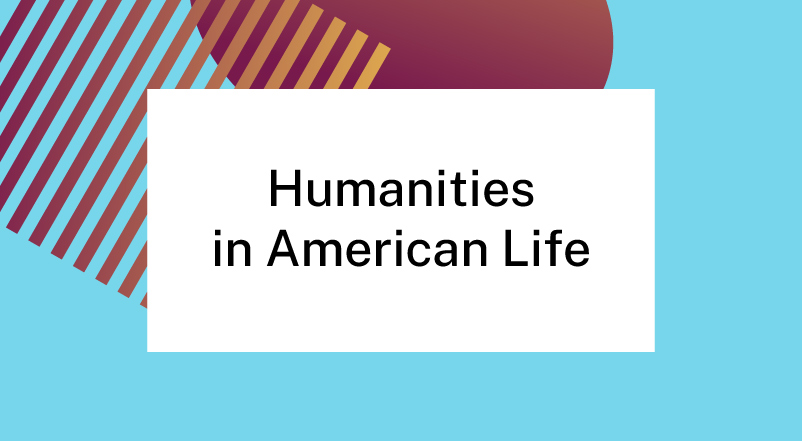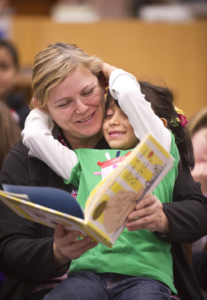This post is part of “Humanities in American Life,” an initiative to increase awareness of the importance and use of the humanities in everyday American life.
Donuts Ask Big Questions Too: Humanities Washington Cabin Fever Kids
by Sydney Boyd, Humanities in American Life project manager
Turn to page 27 of Cabin Fever Kids, a new digital book from Humanities Washington, and you’ll find Zombies Don’t Eat Veggies!, a story by Megan Lacera and Jorge Lacera. You can click a link to read (or listen as Jaime Camil reads) about Mauricio Romero, a zombie with a deep, dark craving for vegetables.
“His parents wanted him to accept who he was—a zombie,” the narrator says, “And zombies don’t eat veggies.” Afterward, you can turn back to the Cabin Fever Kids collection, where there are thoughtful questions for readers to ask about Mauricio’s dilemma, like “How are you different from or the same as your family?”
Cabin Fever Kids is a collection of stories made for parents and teachers who are looking to engage kids in life’s bigger issues. Inside you’ll find lots more open-ended discussion questions to ask after reading stories like Zombies Don’t Eat Veggies! about everything from philosophy and sociology to thinking critically about the difference between fiction and reality.
George Abeyta, program manager at Humanities Washington, manages the Prime Time Family Reading program, and last March, he used his experience previewing texts online for the program to build the downloadable audio format that Cabin Fever Kids became.
“I was glad to know that authors and publishers had given approval for the stories to be read aloud online, and also that some of the stories are available in both English and Spanish,” Abeyta said.
Abeyta selected stories in the collection, which range from magic pebbles and rainbow fish to Red: A Crayon’s Story, with an eye to helping families apply the ideas in the texts to their own lived experience.
“That is through exploring big ideas together, not to compare themselves with others or to compare their lives with others’ lives, but to connect, connect their own ideas within the family and within society in order to learn about each other and also to see how they fit into the greater world,” Abeyta said.
It may seem like asking a lot of seemingly simple stories, but Abeyta said he wants people to know that there is a lot of wisdom to gain from children’s literature. Laurie Keller’s Arnie the Donut, for example, a story about a donut who is not ready to accept his fate as simply a delicious donut, presents a pretty complex idea under the guise of sprinkles and frosting.
“Arnie’s story brings up so many big questions stemming from the character’s absurdist awareness of himself as a donut,” Abeyta said. “The story also is a bit like Locke’s discussion of human understanding as Arnie builds his ideas through his experiences in the world — but from donut batter to donut dog. It’s silly and fun but still thought-provoking and insightful and ultimately about the human condition.”
Questions about who we are, how we form conclusions, and how we decide what to believe, Abeyta hopes, are universal. But sometimes it takes a veggie-loving zombie, a single red crayon, or even a donut to start the conversation.
Photo credit: Kirk Hirota




